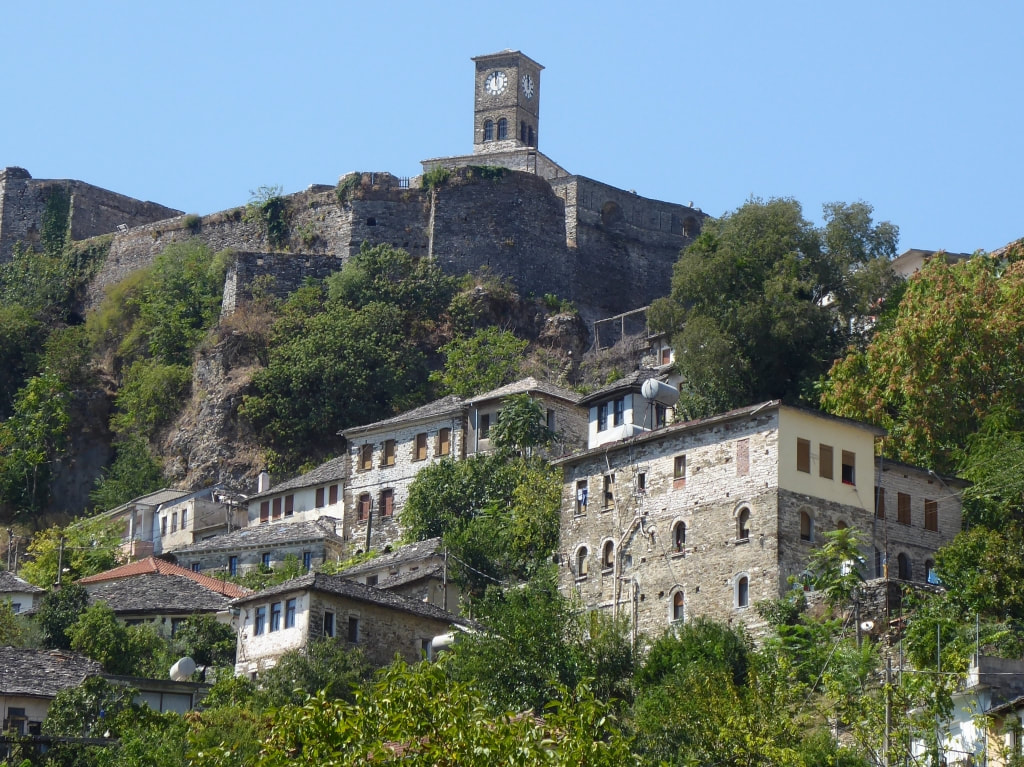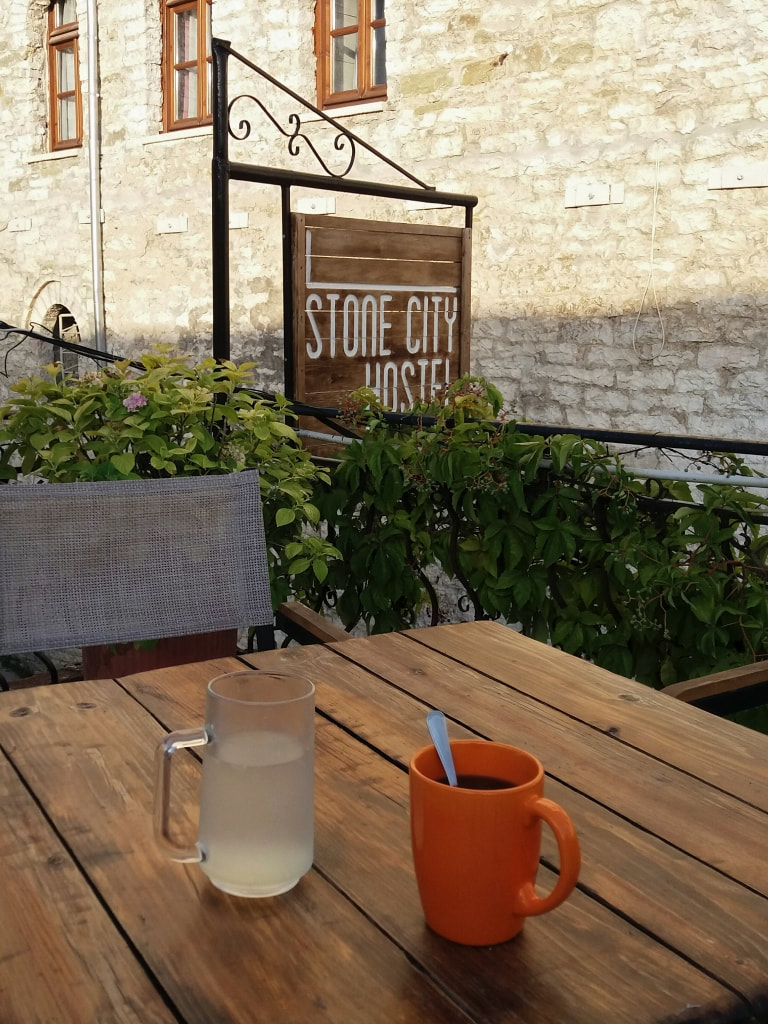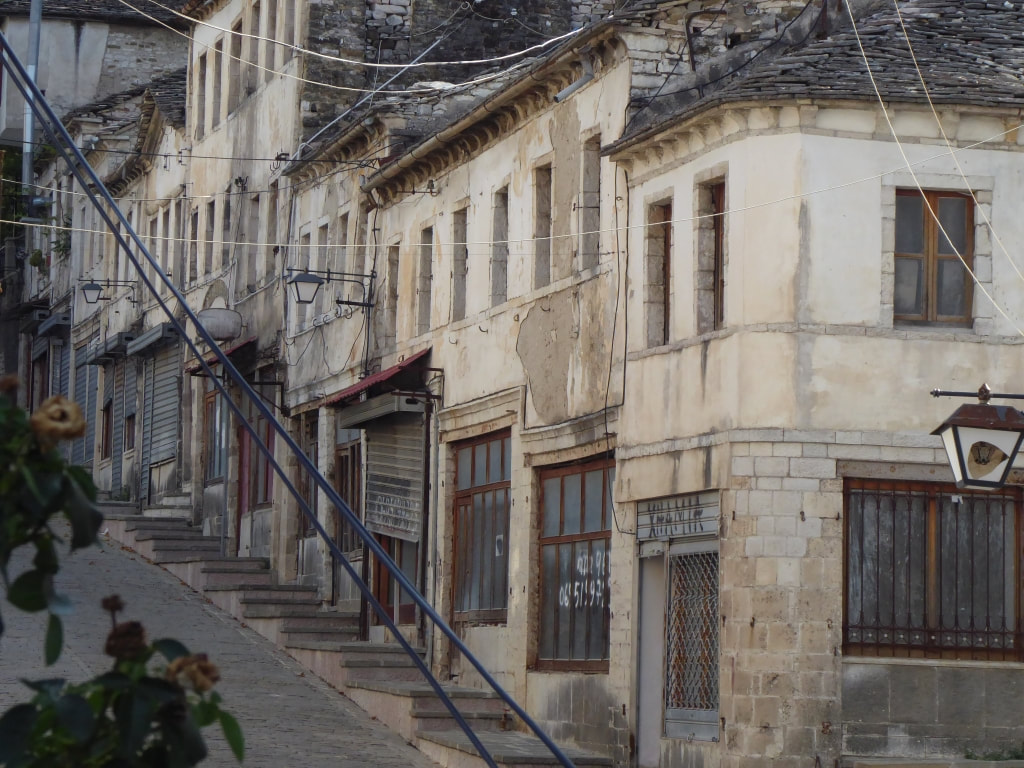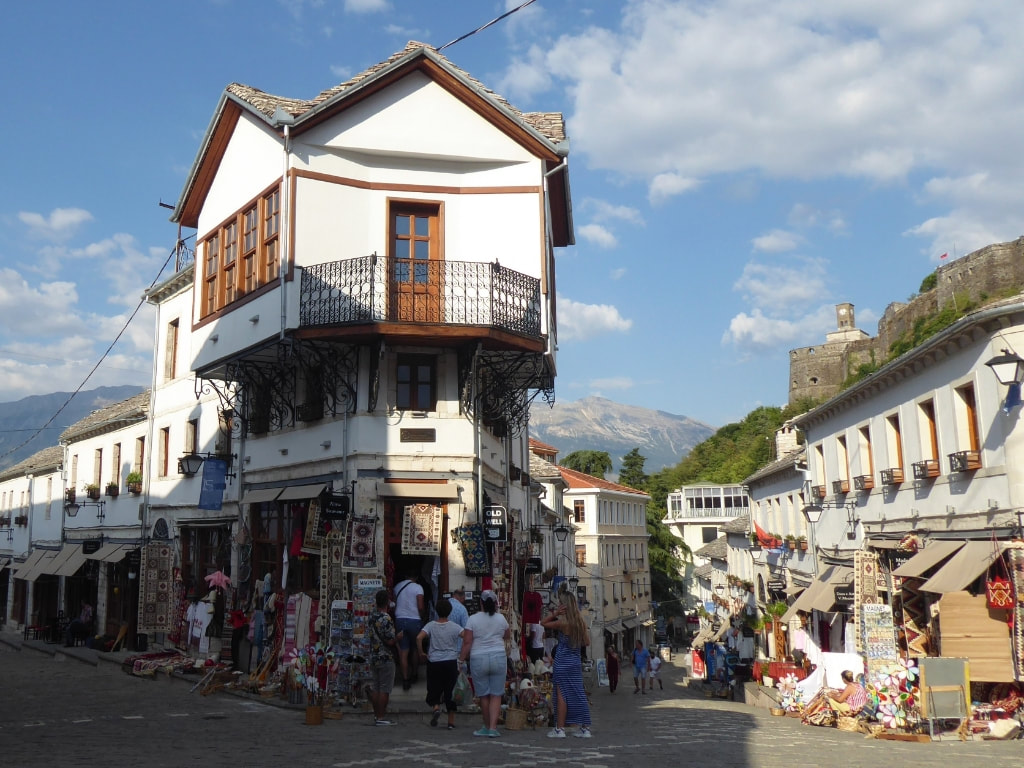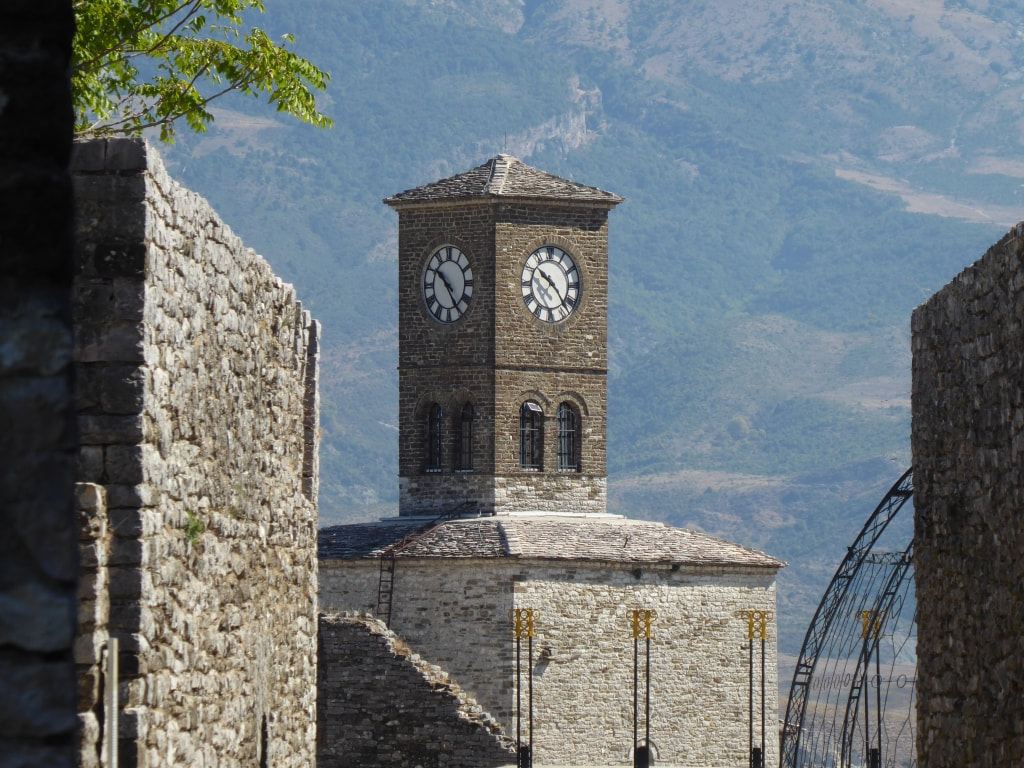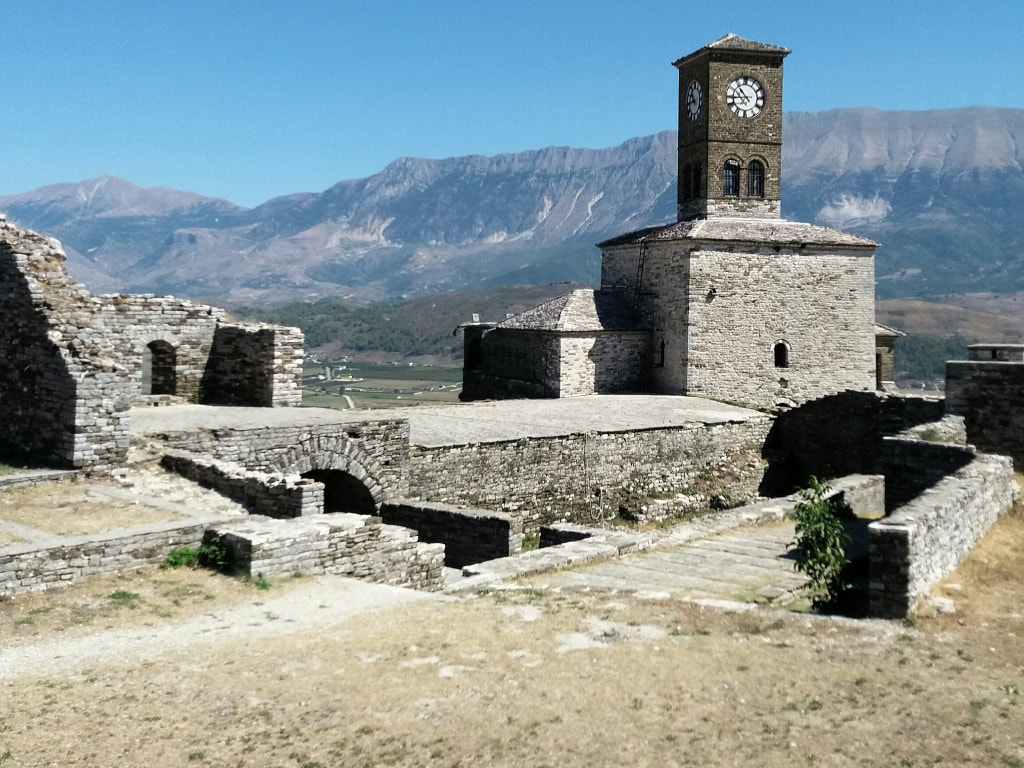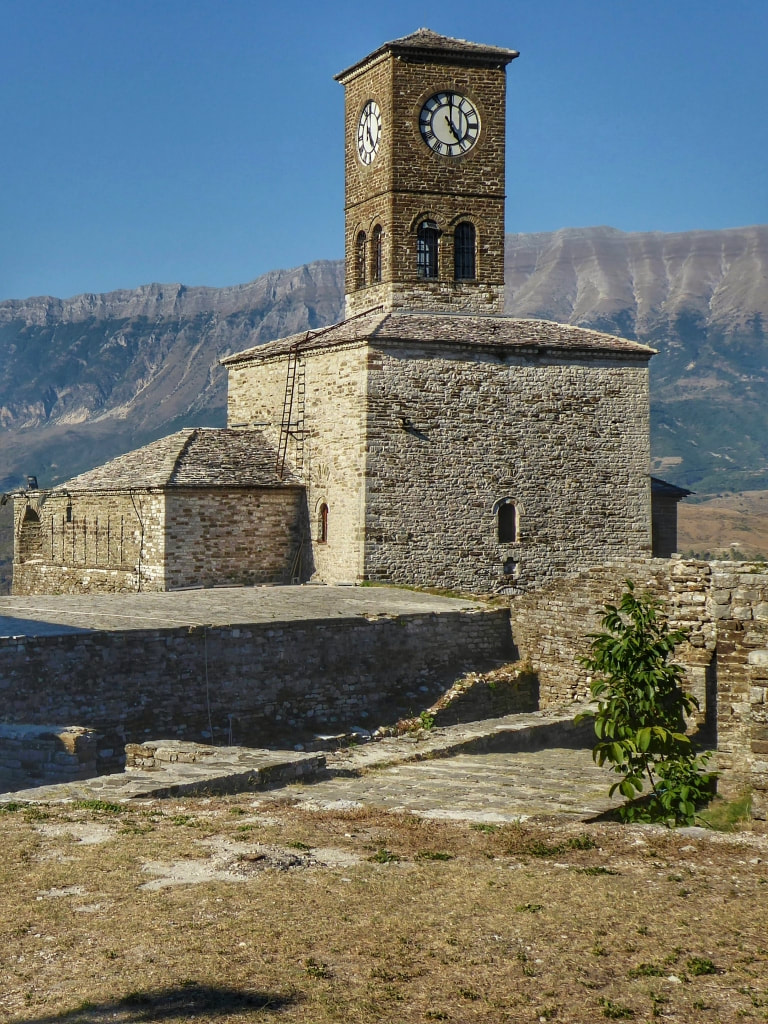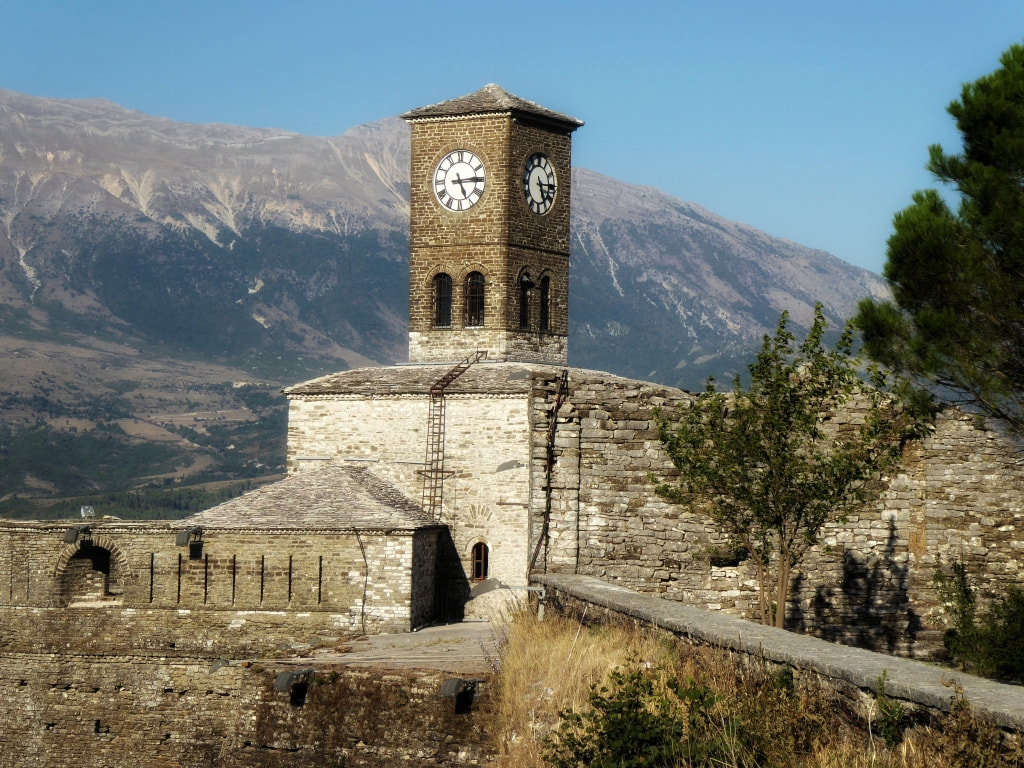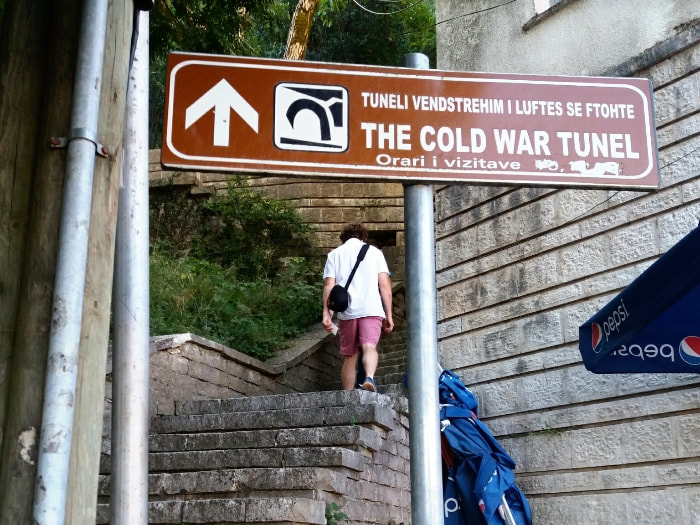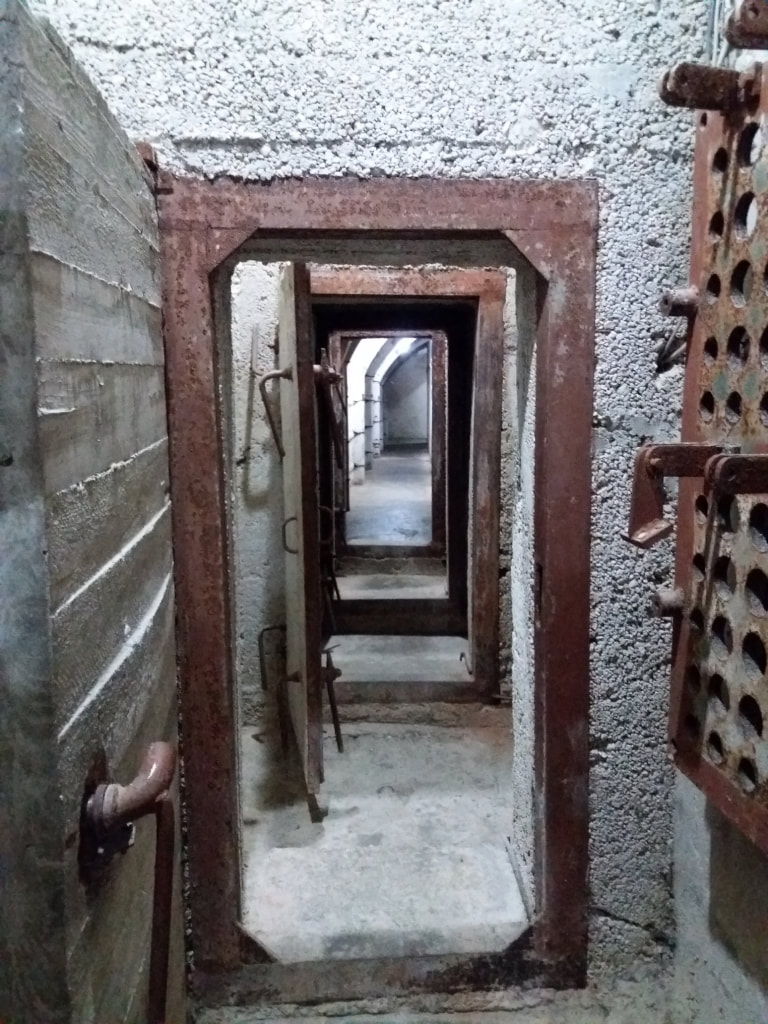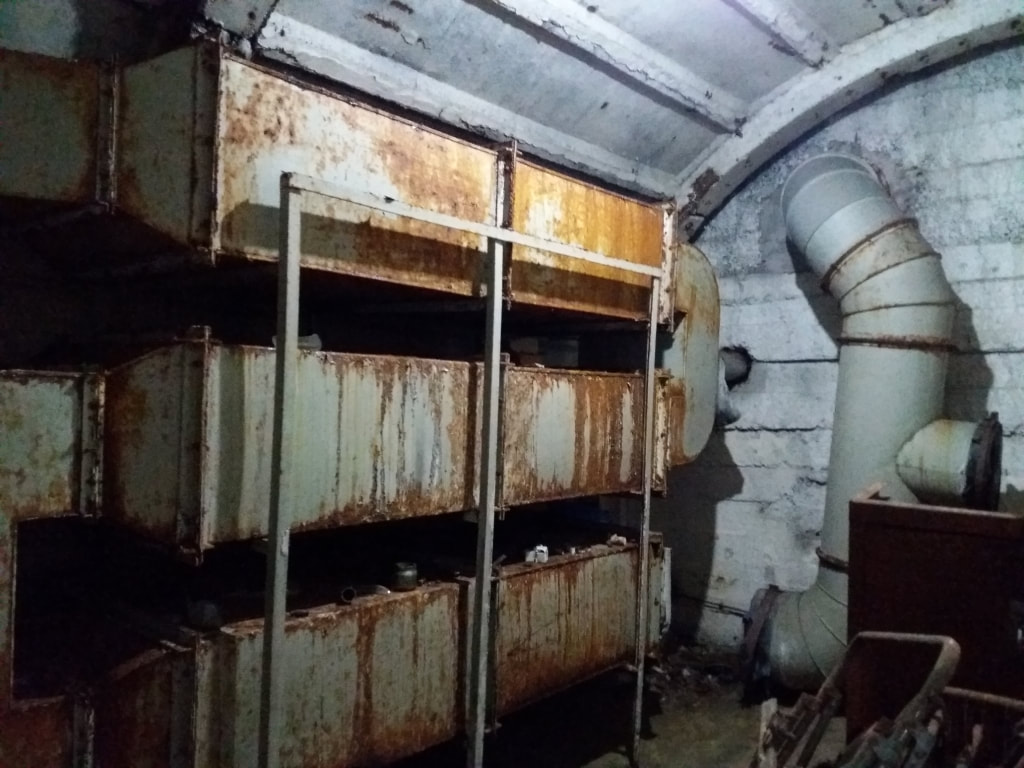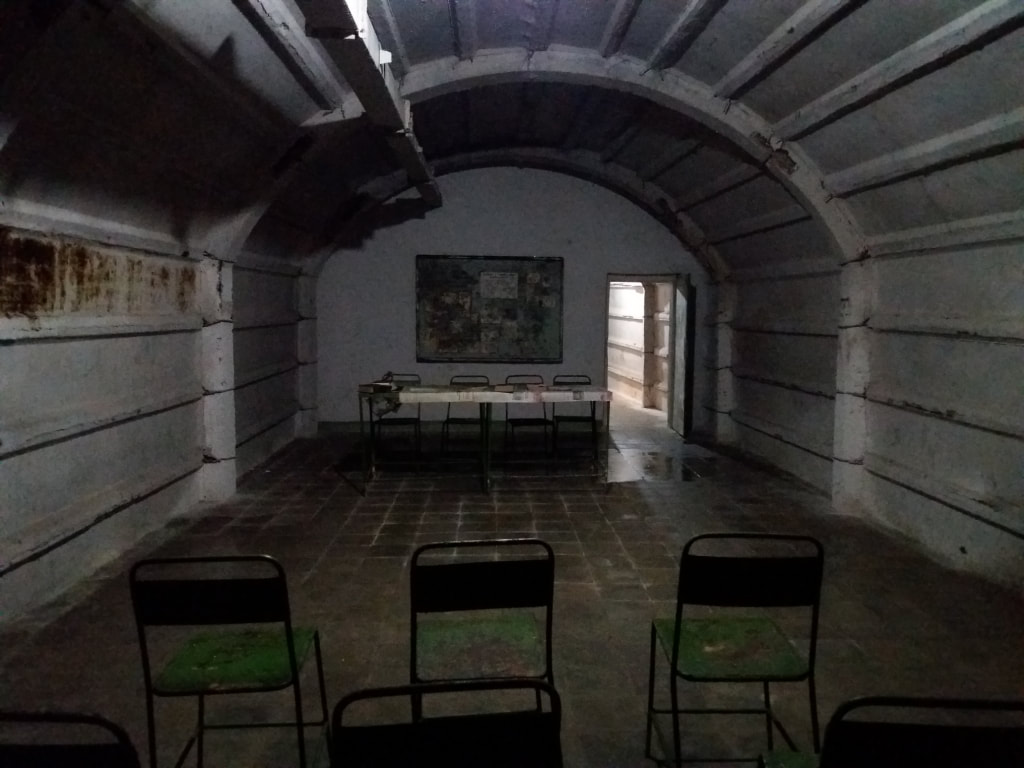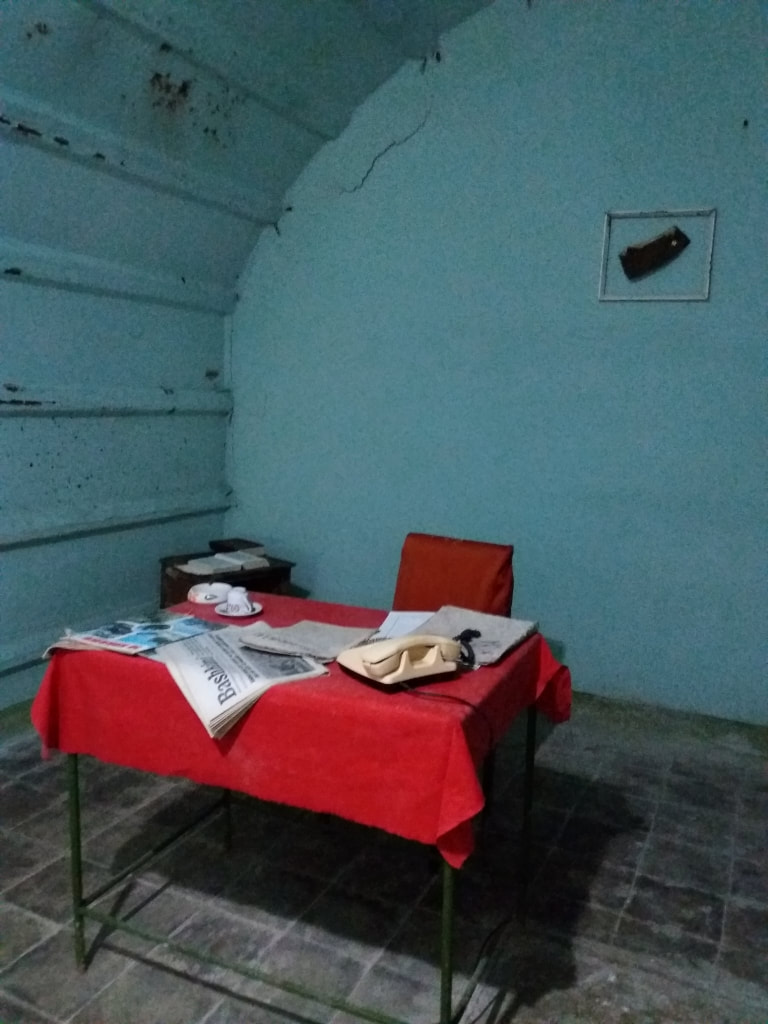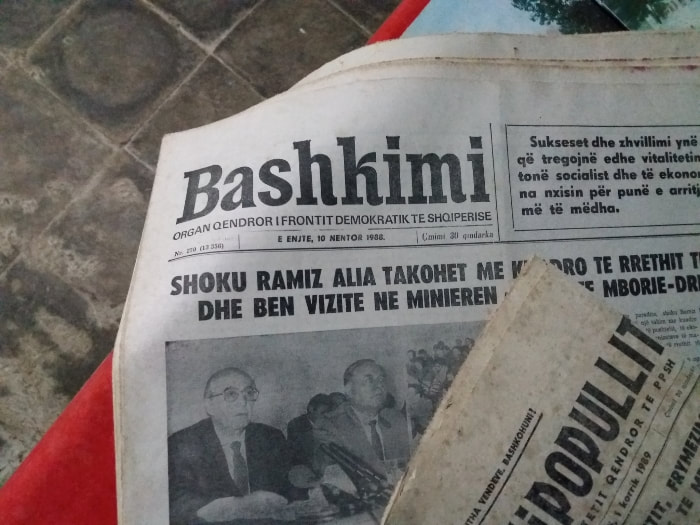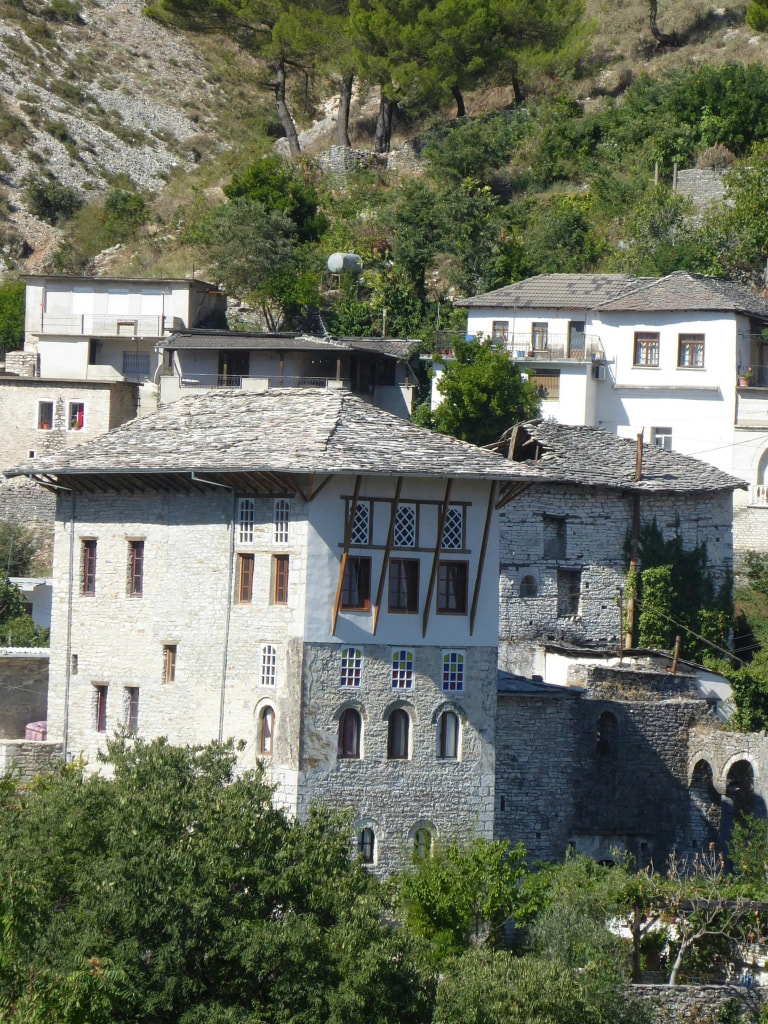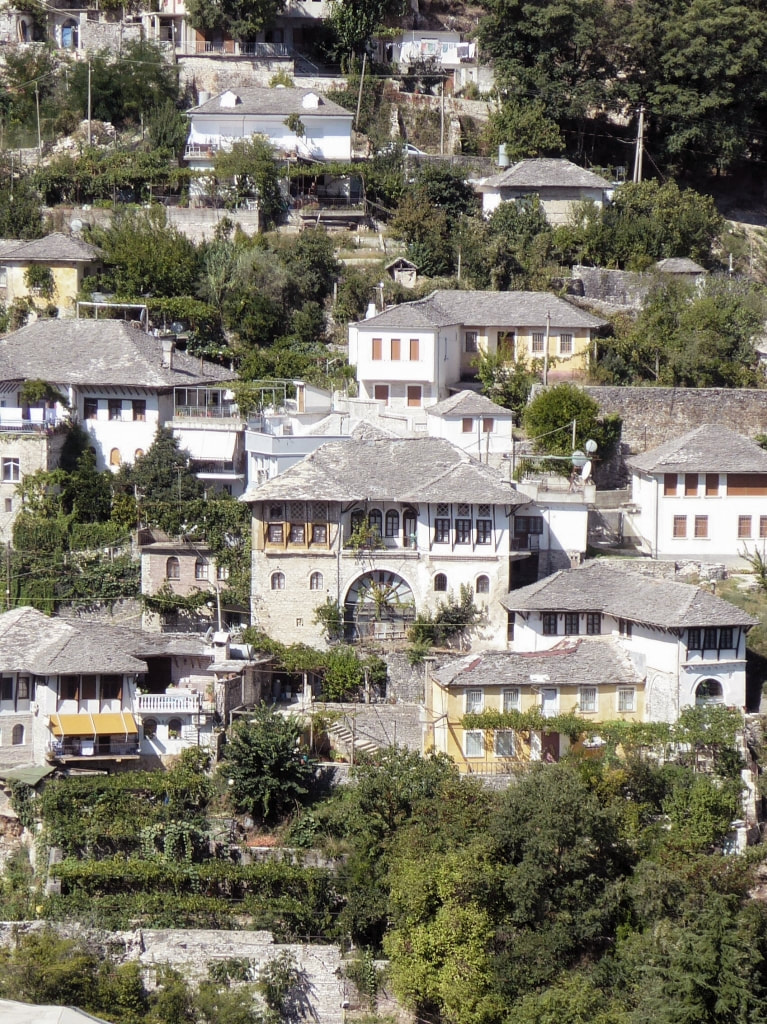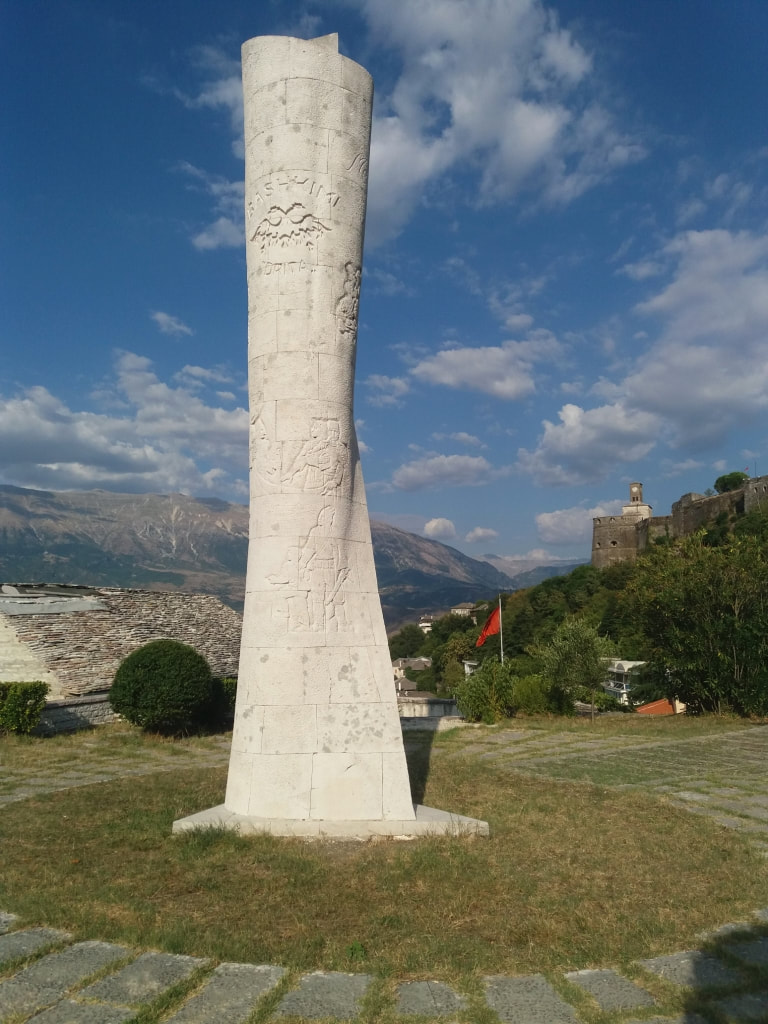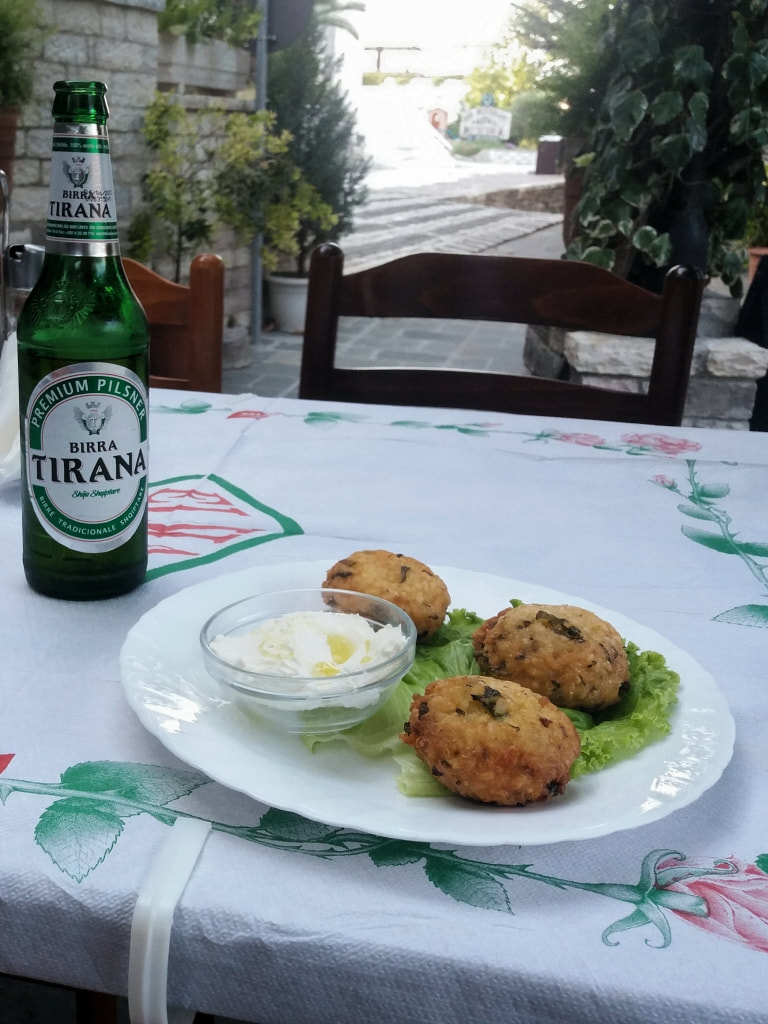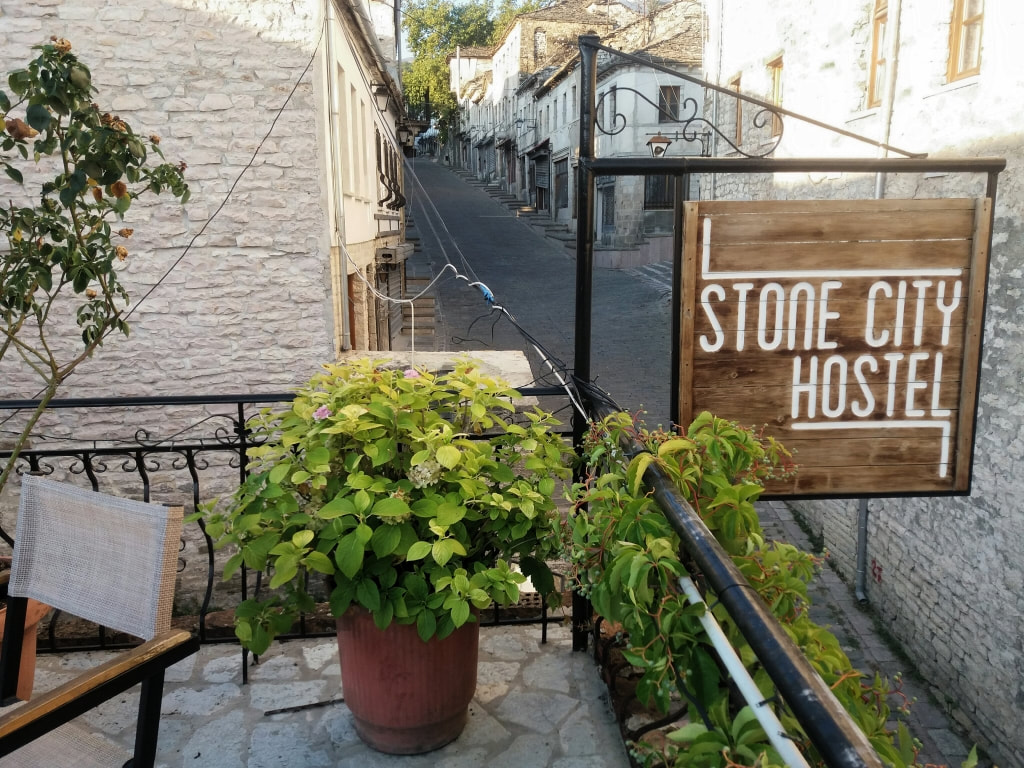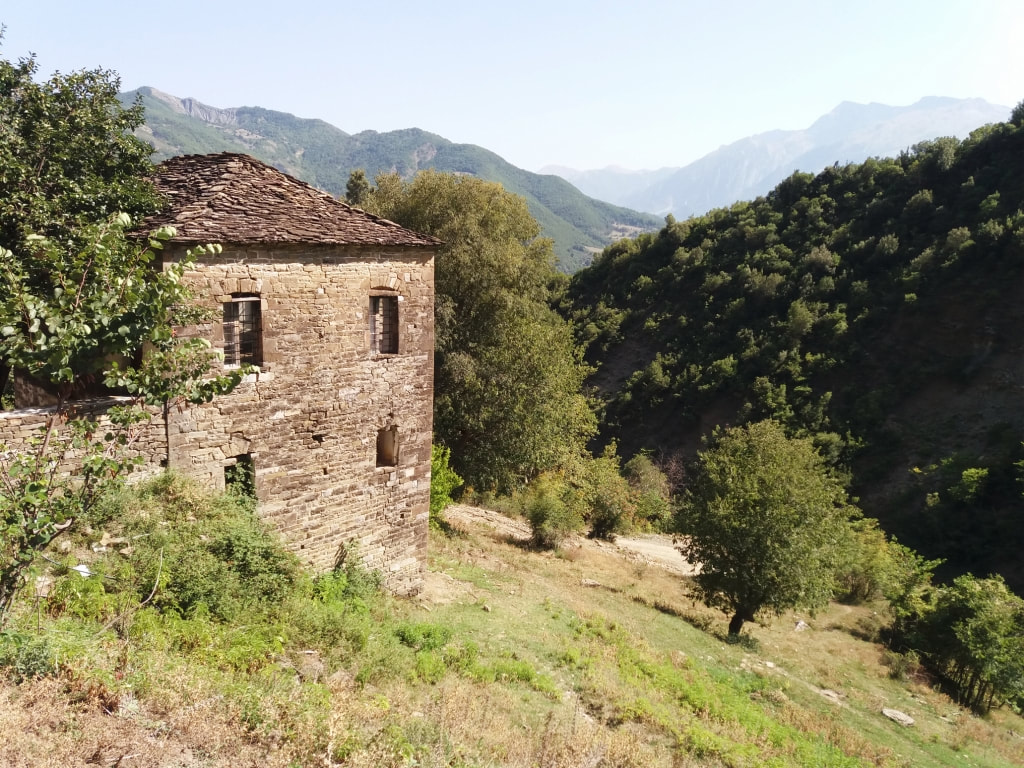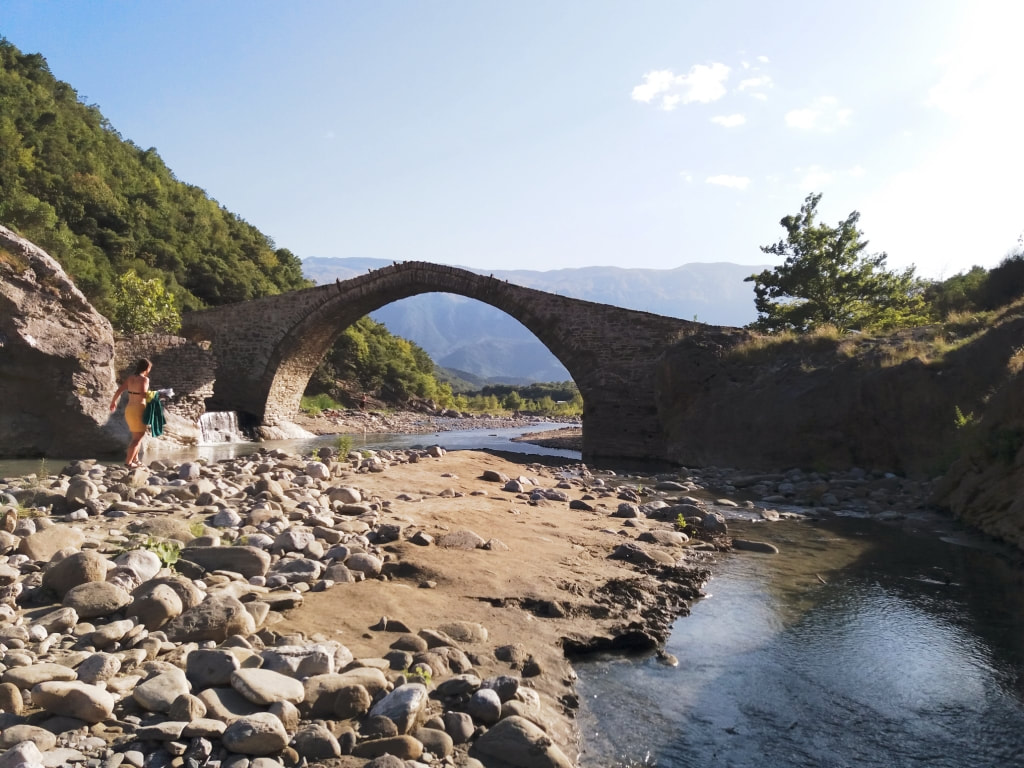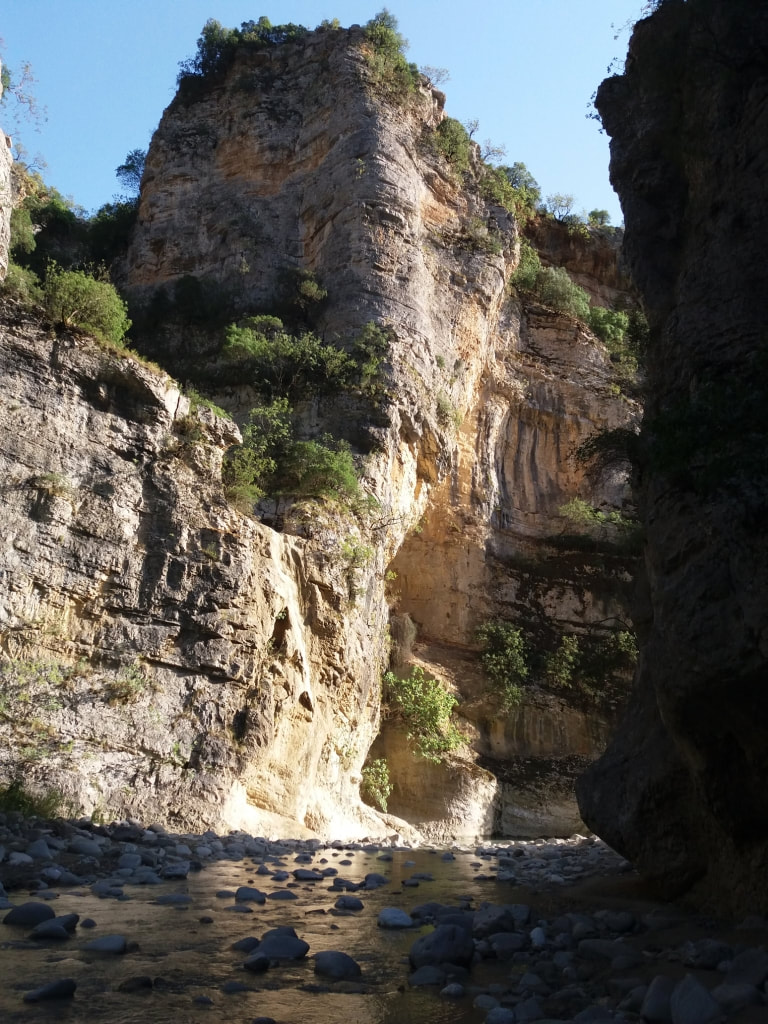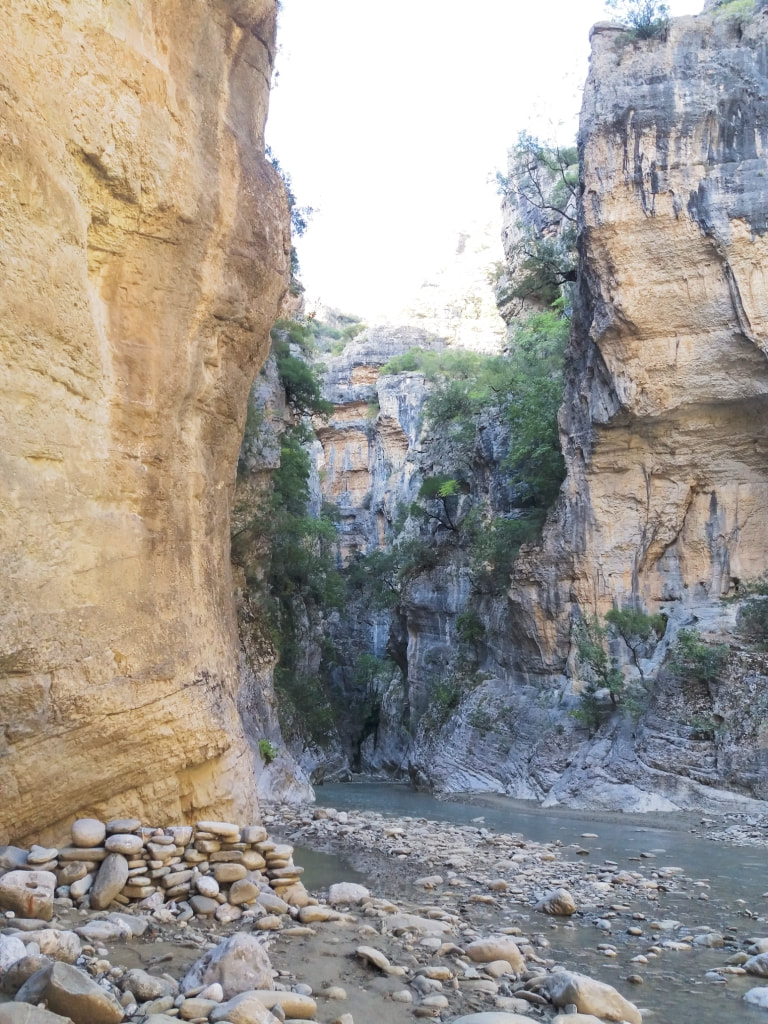Backpacking in Albania: Gjirokaster - The UNESCO Town of a thousand steps
Gjirokaster, the town of a thousand steps, UNESCO listed since 2005, the birthplace of former communist dictator Enver Hoxha and novelist Ismail Kadare.
Having backpacked Berat, the town of a thousand windows, I continue my backpacking journey, around Albania in the Summer of 2020.
Having backpacked Berat, the town of a thousand windows, I continue my backpacking journey, around Albania in the Summer of 2020.
Gjirokaster in the summer is very hot. Walking around between 2 pm and 5 pm is best avoided. The streets are cobbled and steep, the sun intense.
Get up early. 6 am is a good time to sit outside with a cup of coffee:
Get up early. 6 am is a good time to sit outside with a cup of coffee:
Old shops on a steep street in Gjirokaster:
Tourist bazaar in Gjirokaster. Not much business during Covid though. Cute buildings:
The castle sits on top of the hill above the town. It's open from 9 am to 6 pm, costs 300 LEK but is free on Sunday. I went there after breakfast!
There are lots of things to see up there including a museum and military weapons display but I have a fascination for the clock tower:
There are lots of things to see up there including a museum and military weapons display but I have a fascination for the clock tower:
And then I went back at 5 pm and stayed until they kicked me out.
There is a tunnel under the castle, which I obviously walked through and made this short video:
There is also the Cold War Tunnel Museum, I went along alone and the guy in the small kiosk said, 'it's a guided tour, so come back with a few people', WTF, so I went back a few days later with another backpacker who arrived. The fee is 200 LEK.
It was built in secret in the 1970s and it's purpose was that it would be used as a bunker for government officials in the event of an evasion. It has 800m of tunnels and 59 rooms. The tunnel today is pretty much as it was so it has a very authentic feel, though most rooms are empty:
It was built in secret in the 1970s and it's purpose was that it would be used as a bunker for government officials in the event of an evasion. It has 800m of tunnels and 59 rooms. The tunnel today is pretty much as it was so it has a very authentic feel, though most rooms are empty:
There are a couple of House Museums: Skenduli House and Zakate House. I went to the Skenduli House which is the best preserved and most authentic in Gjirokaster and owned by one of the richest families, the Skenduli family. The house has 64 windows, 44 doors, 12 rooms, 4 hamams, and 6 bathrooms.
They run guided tours, entrance fee is 200LEK. Photography is forbidden but you can see a few photos and read a little more about the house on the visit-gjirokaster website.
They run guided tours, entrance fee is 200LEK. Photography is forbidden but you can see a few photos and read a little more about the house on the visit-gjirokaster website.
Enver Hoxha, the former communist dictator of Albania, from 1944 to 1985, was born in Gjirokaster 1906. The house in which he was born no longer exists, it was destroyed by fire. In 1966 a larger house was built but is still known as the house where he lived. It is now the Ethological Museum.
View of the old traditional houses in Gjirokaster:
View of the old traditional houses in Gjirokaster:
The 2nd most famous former resident of Gjirokaster is Albania poet, novelist and playwright Ismail Kadere. Born in 1936, he wrote a number of well-acclaimed books, including Chronicle in Stone which describes life in a small Albania city during the Second World War.
He 'escaped' to France in 1990 and applied for asylum where he could continue to write 'freely' after some of his writings had not been well received and some had even been banned by the authorities.
The original house has been replaced after it was destroyed by fire in 1997. He was quoted as saying, when he returned to Gjirokaster, "this is not my house".
He 'escaped' to France in 1990 and applied for asylum where he could continue to write 'freely' after some of his writings had not been well received and some had even been banned by the authorities.
The original house has been replaced after it was destroyed by fire in 1997. He was quoted as saying, when he returned to Gjirokaster, "this is not my house".
There is this neat obelisk and it's a bit tricky to find. The entrance is through a small doorway which is locked outside of office hours and there is no sign!
I don't normally post food pictures as I mostly cook for myself in the hostel kitchens but Gjirokaster is famous for Qifqi, a traditional dish of rice, herbs and eggs, fried in a special pan. I tried it at the small Kujtimi restaurant on the same street as my hostel:
What's the verdict? I tastes like it should. Imagine the flavour, rice, eggs and herbs mixed together, then fried.

